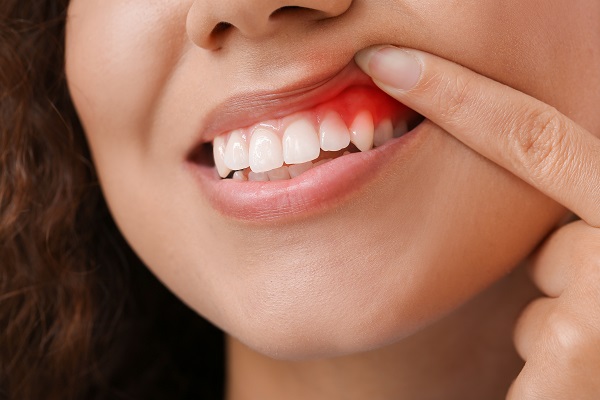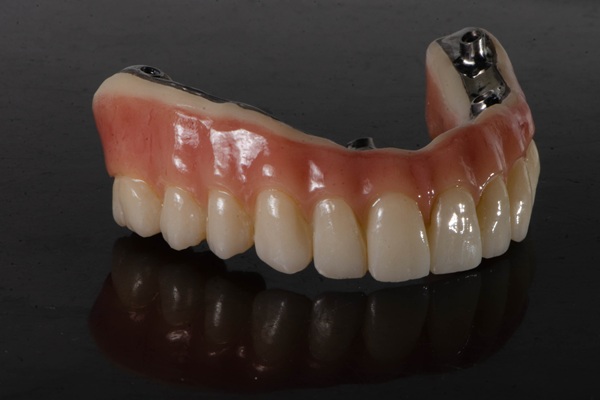Does Gum Disease Put the Entire Body at Risk?

Gum disease is a progressive condition that is caused by bacteria in the mouth getting into gum tissues. Your immune system responds to this invasion by sending off antibodies to fight off the invaders. The ensuing battle leads to inflammation and damage to the structures that support teeth.
How gum disease affects your overall health
The first stage of gum disease is called gingivitis, and it can be reversed with teeth cleanings and improved oral hygiene. The second stage is called periodontitis and it cannot be reversed. Dentists can help to manage issues caused by periodontal disease by performing appropriate treatments. The problems caused by periodontal disease are not restricted to the mouth. The bacteria that cause the condition have been linked to other issues like:
1. Heart disease
Poor oral hygiene and gum disease increase a person’s risk of developing heart disease. The bacteria that infect gum tissues and lead to inflammation can make their way into the bloodstream, leading to the buildup of plaque inside arteries. This increases the person’s risk of suffering a heart attack.
2. Dementia
Some of the chemicals that are released by gum tissues that have been invaded by bacteria can lead to the loss of brain cells and memory. Gum disease can lead to dementia when the type of bacteria that leads to gingivitis gets into the bloodstream or nerve channels.
3. Prostate issues
Men who have periodontal diseases have a higher risk of developing a condition called prostatitis. The condition can lead to difficulty ejaculating, a weak bladder and pain when urinating.
4. Respiratory issues
Bacteria in the mouth can be inhaled into the lungs, leading to respiratory issues like bronchitis, pneumonia and other respiratory infections. Getting gum disease under control can help to reduce this risk.
5. Erectile dysfunction
The bacteria that cause gum disease can lead to blood vessels becoming inflamed. This can hinder the flow of blood to the genitals, making it harder to get an erection.
Protecting yourself against gum disease
Good oral hygiene goes a long way when it comes to preventing gum disease. The condition occurs when oral bacteria in plaque or tartar make their way into gum tissues, infecting them. Plaque is a sticky film that forms on teeth surfaces after meals. It is made up of acids and bacteria, and it can be removed by brushing. However, when plaque is left on teeth surfaces for extended periods, it hardens into tartar which cannot be removed by brushing. Teeth cleaning is needed to get rid of plaque.
Dentists recommend brushing at least two times a day to prevent the build-up of plaque on teeth surfaces. Teeth should be flossed once daily, and an antibacterial mouthwash can help to kill off some of the bacteria that lead to gum disease.
Make oral health a priorty
Biannual trips to a dentist also go a long way when it comes to protecting against periodontal disease. Call or visit our Aurora clinic to set up an appointment with a dentist.
Request an appointment here: https://alamedadentalaurora.com or call Alameda Dental at (303) 343-7072 for an appointment in our Aurora office.
Check out what others are saying about our dental services on Yelp: Gum Disease in Aurora, CO.
Recent Posts
Gum disease affects more than half of all adults in the United States, according to the International Journal of Health Sciences, and there are different forms of the condition. Gum disease is prevalent and one of the major causes of tooth loss. Therefore, it helps to understand the various stages of gum disease and its…
When it comes to oral health, the condition of the gums can be key. Proper brushing, flossing and the prevention of gingivitis can support good gum health; however, when individuals suffer from crooked teeth, an underbite or an overbite and choose to get braces, this may cause problems with the gingiva. Dental patients who want…
Understanding that laser dentistry is a treatment option for addressing cavities means that dental patients have choices. While not all dental professionals offer laser treatment, many now do as they want to offer their patients treatments that use advanced dental technologies. According to WebMD, lasers may preserve more healthy tooth tissue during cavity treatment.Thinking laser…
Thinking about choosing laser dentistry to remove one or more of your oral lesions? Soft-tissue lasers are often used to remove lesions because they offer precise dental treatment. This means that those who choose dental lasers to undergo lesion removal will often experience less pain and less scarring, both of which are important to consider…


